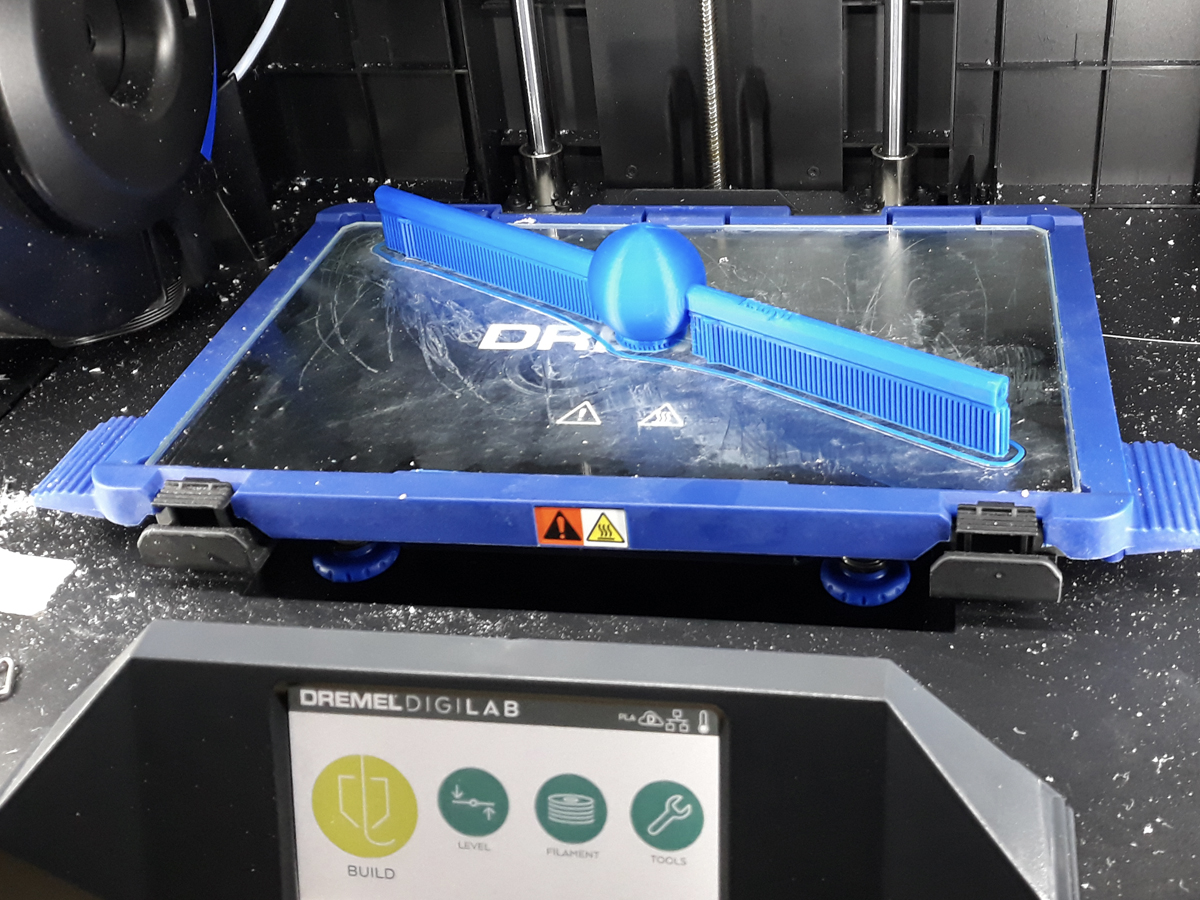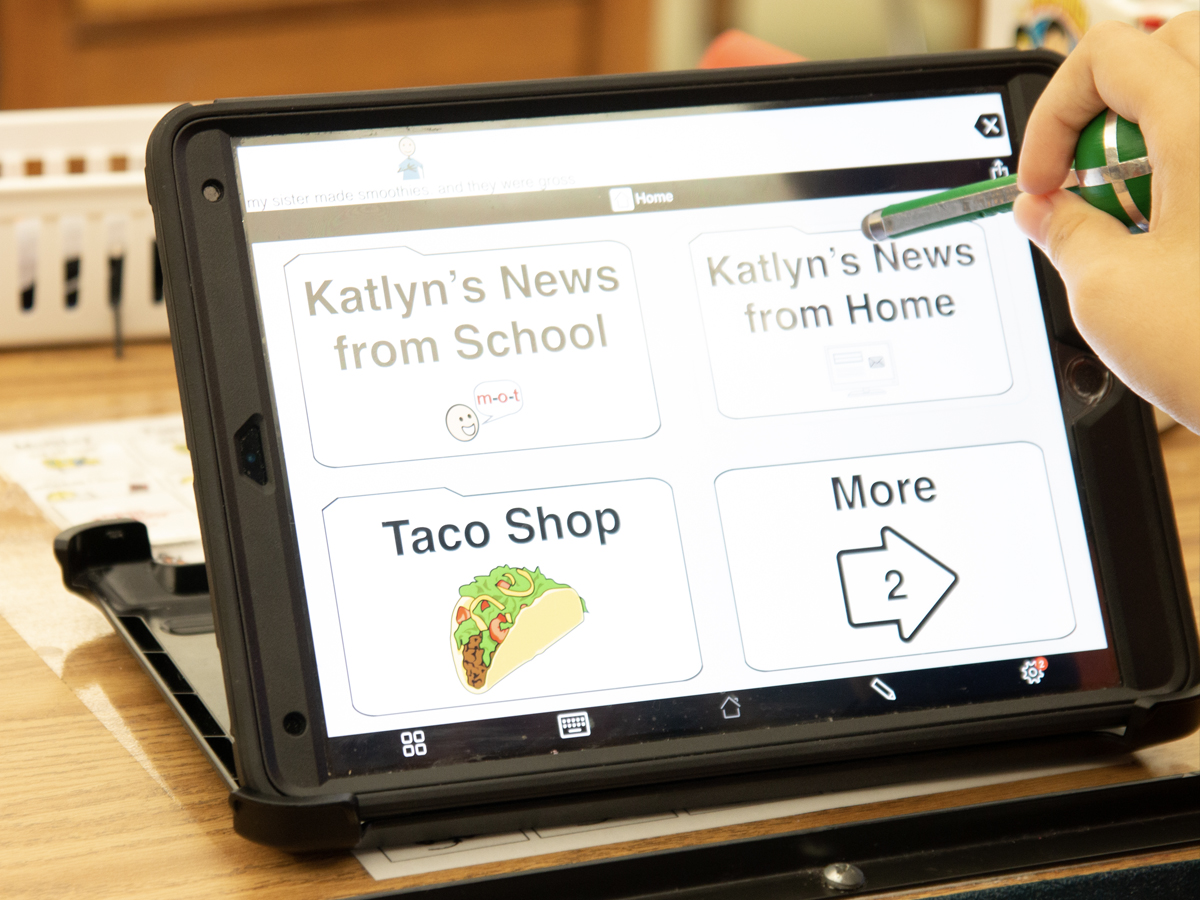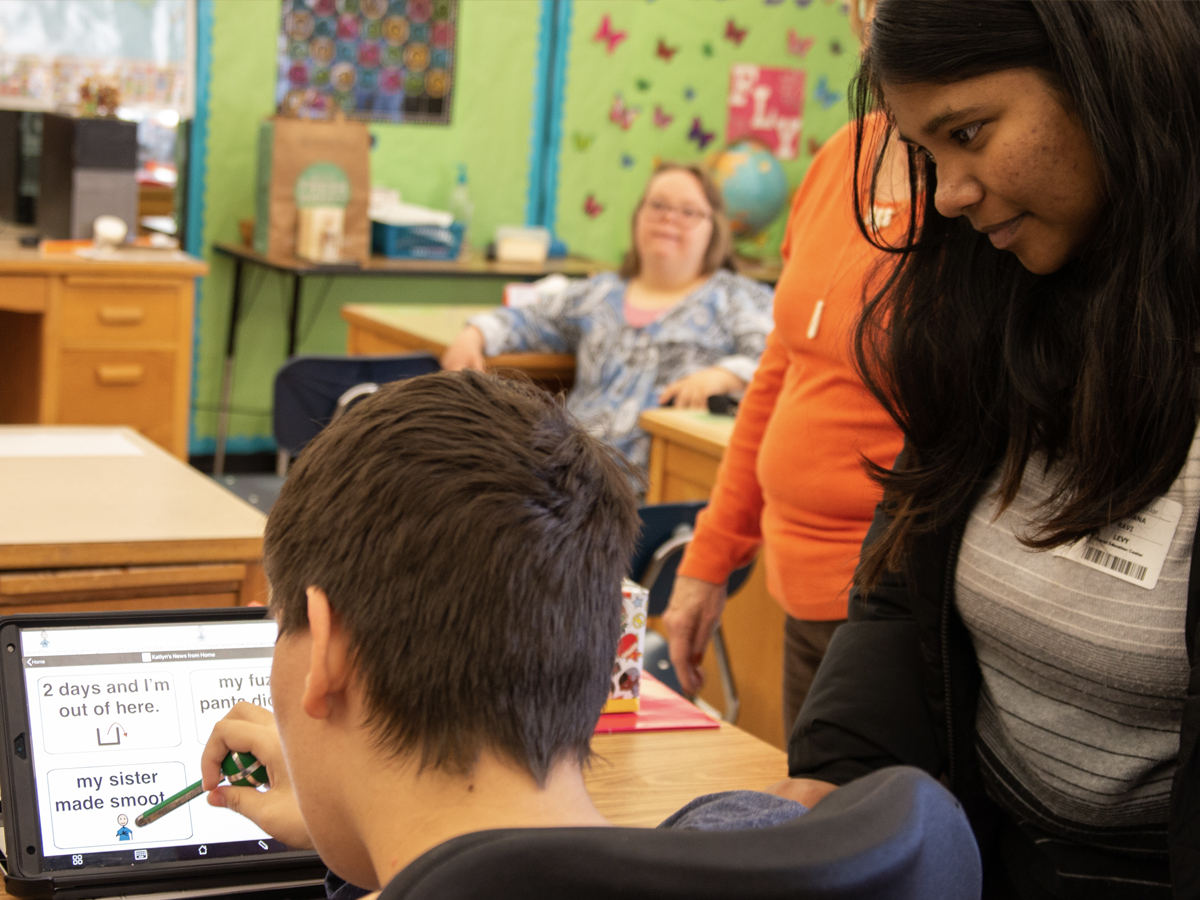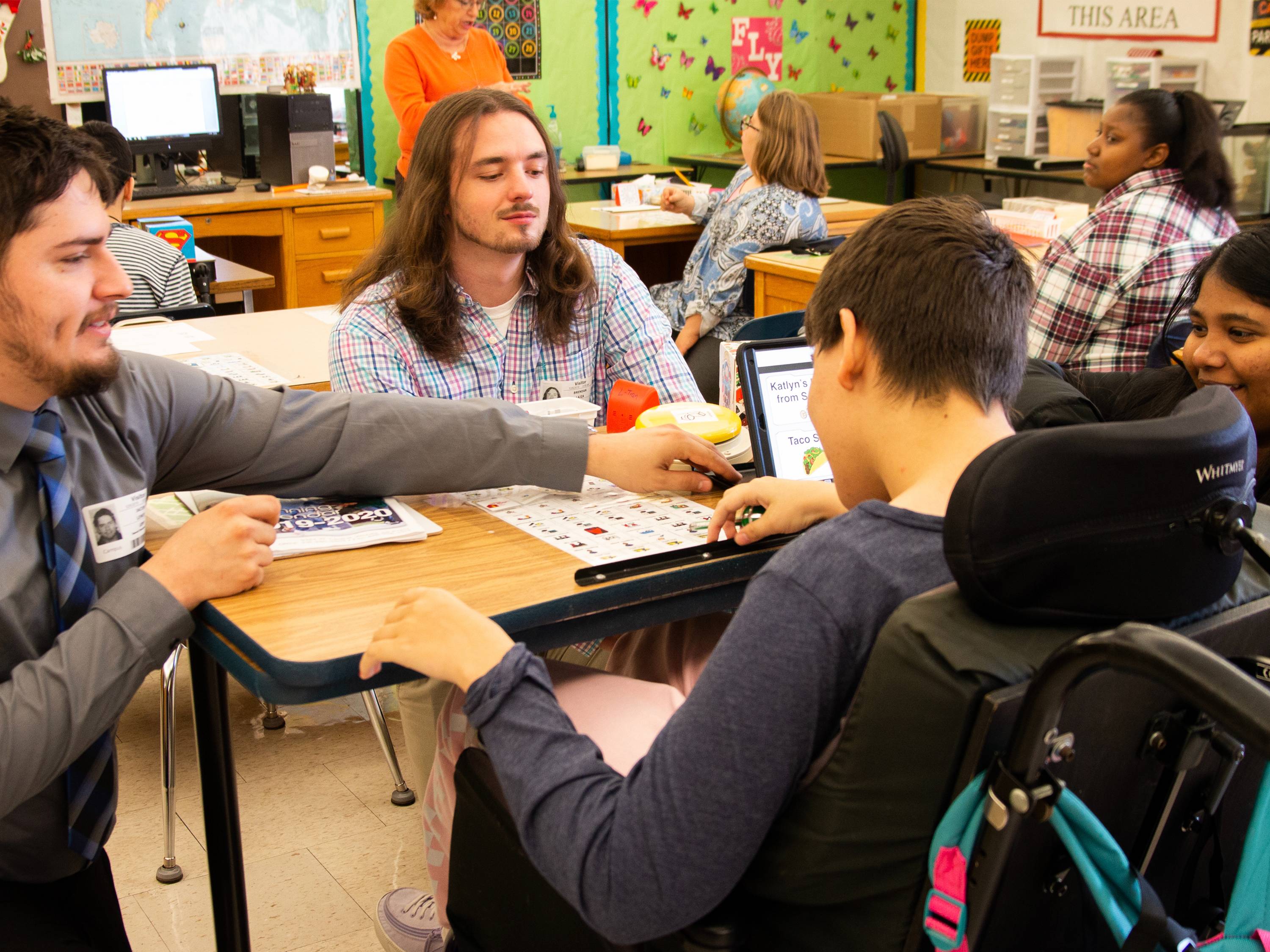Katlyn, a student at USD 259’s Levy Special Education Center, has cerebral palsy and is nonverbal. It’s ordinarily very difficult for her to communicate.
But three Wichita State engineering students – aerospace engineering seniors Meghana “Meg” Ravi and Brendan Lajza, and electrical engineering senior Jacob Lewis – have made communication a lot easier for her as a project for ENGR 202 “Service Learning in Engineering” this semester.
Katlyn uses an iPad equipped with an app called Proloquo2Go. The app is meant to aid people with limited speech and motion to communicate through an array of buttons connected to programmed sentences.
The app and the stylus Katlyn originally used were not optimized well for her, and she struggled to use them.
“The problem was that the Proloquo was very hard for her to use because her range of motion was very limited, and also we noticed that the tool she was using to touch the iPad was not responsive at all,” Jacob said.
The group came up with two potential solutions to her struggles.
“We thought, ‘Let’s make some changes to the software to give it more flow and give her a more responsive tool with a high-sensitivity stylus that would be custom for her,” Jacob said.
Over the course of the semester, the students tested several initial styli and software changes and gathered feedback.

“We took measurements and we came up with the ideal solution that we thought would theoretically be the best way to do it, and it turned out that she didn’t like it at all,” Brendan said, “but thankfully we gave ourselves enough time in the project to correct those mistakes, redesign it and reprint it.”
The three consulted Levy’s speech and occupational therapists for guidance on Katlyn’s needs, and worked with her teachers and family on using the adjusted stylus and software.
After communicating with Levy staff, conducting more research and redesigning the product, they had Katlyn test the new stylus.
“It turns out that it worked out pretty well for her,” Brendan said.
After their final project presentation to the class, the group returned to Levy to visit Katlyn.
“When we showed up, she picked up her stylus, pressed the iPad and it said, ‘Thank you very much for helping me.’ It was so sweet,” Jacob said. “That right there was really great. We really appreciated being able to help her, even in a small way.”
The students have also provided Levy and Katlyn’s family with the information needed to continue producing the stylus and operating the software.

“We’re making an Instructable, which is part of our submission for the class,” Meg said. “It has every setting for the iPad, which they can mess around with in the future. It’s also going to have models of the design for the stylus itself, so if they want to reprint or make a little change, they can 3D print it.”
This was the first time WSU engineering students had collaborated with Levy, and there are plans for future assistive technology work with the school.

Samantha Corcoran, ENGR 202 instructor, will initiate ENGR 302 “Accessible Design” in the spring 2020 semester.
The course will focus on similar projects focused solely on assistive technology. It’s also part of the new Assistive Technology and Accessible Design undergraduate certificate program.
ENGR 202 and 302 are not lecture-based, and classes meet once a week to discuss each group’s progress. This group was one of several in the class, and each group assisted a different organization.
“We normally have a lot more structure. Here we had to do everything on our own and figure it out. This is how we would expect work life to be after we get out of college,” Meg said.
ENGR 302 has also received a Tilford Incentive Grant for its promotion of diversity. The mission of the Tilford grant is to promote the infusion of diversity in the WSU curriculum by developing new diversity-related courses or in modifying existing courses to enhance their diversity content.

Katlyn is a part of the Levy Transition Program for students with disabilities from ages 18 to 21. The program prepares them to be successful in their identified adult environments by immersing them in group settings with other students, beyond traditional, one-on-one interactions with instructors.
Levy Special Education Center is a facility located in west Wichita that provides a safe and stimulating learning environment where students’ needs are purposefully and meaningfully met by a team of skilled, caring professionals.
Special thanks to Connie Foster, Levy teacher, for allowing WSU Strategic Communications to enter her classroom for photos and questions on a busy day of class.


